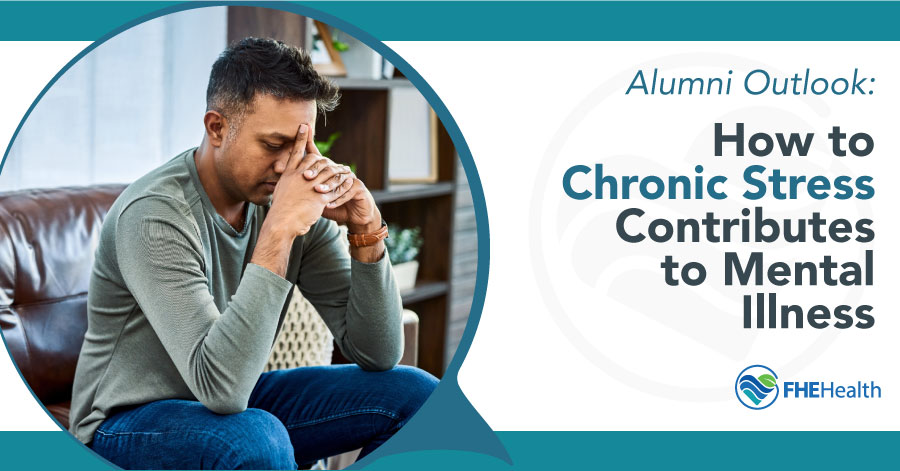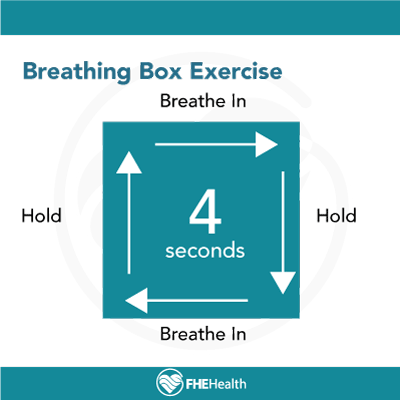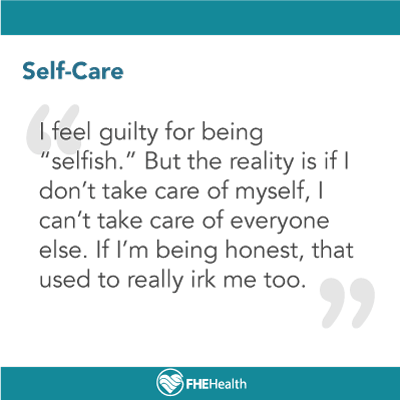
If you are reading this, I would like to first offer my congratulations. Congratulations on surviving what is considered, for many, a challenging and stressful time of year.
I’d like to take a moment to introduce myself. My name is Alaina. I went through the Restore (Mental Health) Program at FHE at the beginning of 2020. It gave me the tools to navigate major depression, ADHD, and PTSD. I also navigate numerous physical chronic illnesses and manage the needs of family members with similar disorders.
Sometimes, it can be stressful navigating all the needs of our complex family, and it’s important to stay on top of my mental health so I can do all that is needed for my physical health. Chronic stress is a very real thing and can feel overwhelming. That’s why it is so important to know how to navigate it.
Everyone’s stress looks different. We all face aspects of life around finances, relationships, and health. But when they aren’t going the way we think they should, or if parts change, it can be stressful. When multiple parts of life are challenging, that can lead to more stress and then chronic stress. That chronic stress can in turn impact so many areas of life.
How Chronic Stress Affects Quality of Life
In my experience, sleep (or lack thereof) can exacerbate mental health conditions. We all know sleep is important. Good sleep makes for a refreshed and hopefully functional person the next day.
I do my nighttime routine which includes a mug of tea and avoiding my phone (most nights) for a period before crawling under my blankets with my dogs. Puppy snuggles, blankets, and pillows are all I need to feel comfortable. Then, I close my eyes, and boom! My brain starts to think about all the things on my plate.
I often find myself thinking about all the upcoming appointments, worrying if I forgot one, reviewing the upcoming schedule and trying to figure out if I can do it all, and so many other things that run through my mind.
Designate Bedtime Routines to Curb Chronic Stress
 So, what’s a person supposed to do? What do you do when you have done all the things to help make bedtime result in sleep? What do you do when the sheep you are counting turn into all the things on your plate? What do you do when you start stressing about getting enough sleep while trying to sleep?
So, what’s a person supposed to do? What do you do when you have done all the things to help make bedtime result in sleep? What do you do when the sheep you are counting turn into all the things on your plate? What do you do when you start stressing about getting enough sleep while trying to sleep?
I have discovered a trick that works for me. When “counting sheep” turns into “worry monkeys,” I do a few different things. The first is some box breathing. I inhale for 5, hold for 5, exhale for 5, and hold for another 5. I repeat this until I feel like my brain can tackle the worry monkeys.
Then, I take that worry and do some imagery of triumph. I imagine myself getting up, doing my morning routine, and successfully navigating what is on my plate for the next day.
The Importance of Acceptance
Another thing I must practice is a mantra of acceptance. Life has repeatedly taught me acceptance is not approval. I don’t approve of the fact that I’m not surrounded by palm trees, beaches, and ocean water. But I accept that I am surrounded by cornfields, cows, and open plains.
Similarly, I don’t approve that life is constantly busy. But I accept the fact that I have responsibilities as a wife, mother, friend, and employee. I can’t change the fact that these tasks need doing. But if I fight them, and worry about them; then I will not be able to accomplish what needs done, which ultimately causes more stress.
Overcoming Analysis Paralysis
 While I’m thinking about all the things that I need to accomplish, this puts me at a higher risk for relapse. I know… recovery comes first. But when I’m so focused on taking care of everyone else, it’s difficult to put myself first. This is more difficult because of the phrase “Family First.”
While I’m thinking about all the things that I need to accomplish, this puts me at a higher risk for relapse. I know… recovery comes first. But when I’m so focused on taking care of everyone else, it’s difficult to put myself first. This is more difficult because of the phrase “Family First.”
When I’m navigating mental health care for my kiddos; physical health care for myself, my spouse, and kiddos with more complex needs; and everyday life, it becomes almost a chore to take care of myself. I feel guilty for being “selfish.” But the reality is if I don’t take care of myself, I can’t take care of everyone else. If I’m being honest, that used to irk me too.
That’s where the acceptance part comes in as well. I get frustrated by the amount of work I must put into my recovery. It’s a little less than when I first got home, but it still has daily aspects.
Prioritize Self-Care to Support Mental Health
I have to take time for mental breaks (in my case, sometimes this is deep breaths while hiding in my bathroom). I have to make sure I’m eating right for my body. I have to make sure I get outside even if it’s only just a few minutes. I have to make sure I’m in contact with my support system and communicate what’s going on with me to my spouse. I also must accept help and that’s probably the hardest challenge for me.
I think there is a stigma once someone goes to treatment that they are perfectly fine afterward. But that’s not reality. The reality is that it takes a village. It took a team of people to help me get back on my feet, and it took a team of people to help me stay on my feet.
Life is challenging and chronic stress often makes it even more taxing. Many would agree that recovery isn’t easy and that maintaining recovery is also hard work. But at the end of the day, all that work is worth it. The work allows me to navigate a stressful life.
If you are in a period of high stress, remember that the work you continue to put into your recovery is worth it. You are worth it. It’s okay to reach out for help if you need it. If there is one thing I want you to take away from this, it’s the knowledge of not being alone in navigating life. It’s a reassurance that you are worth the work and that it’s ok to ask for help and lean into your support system.






